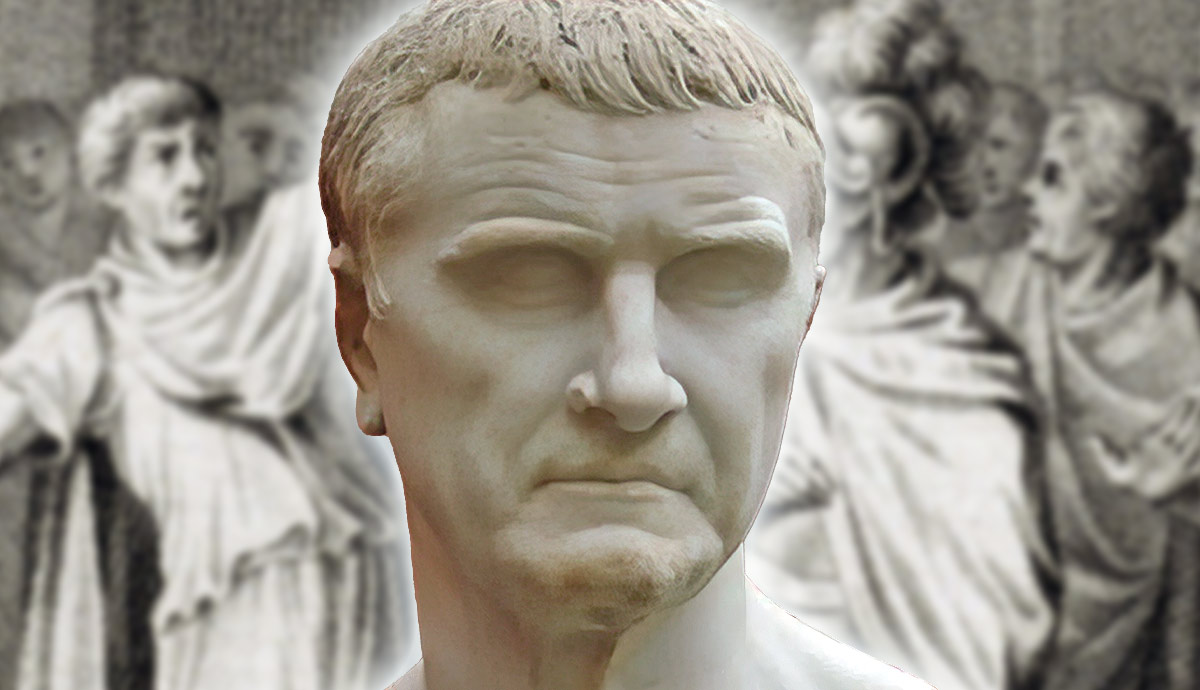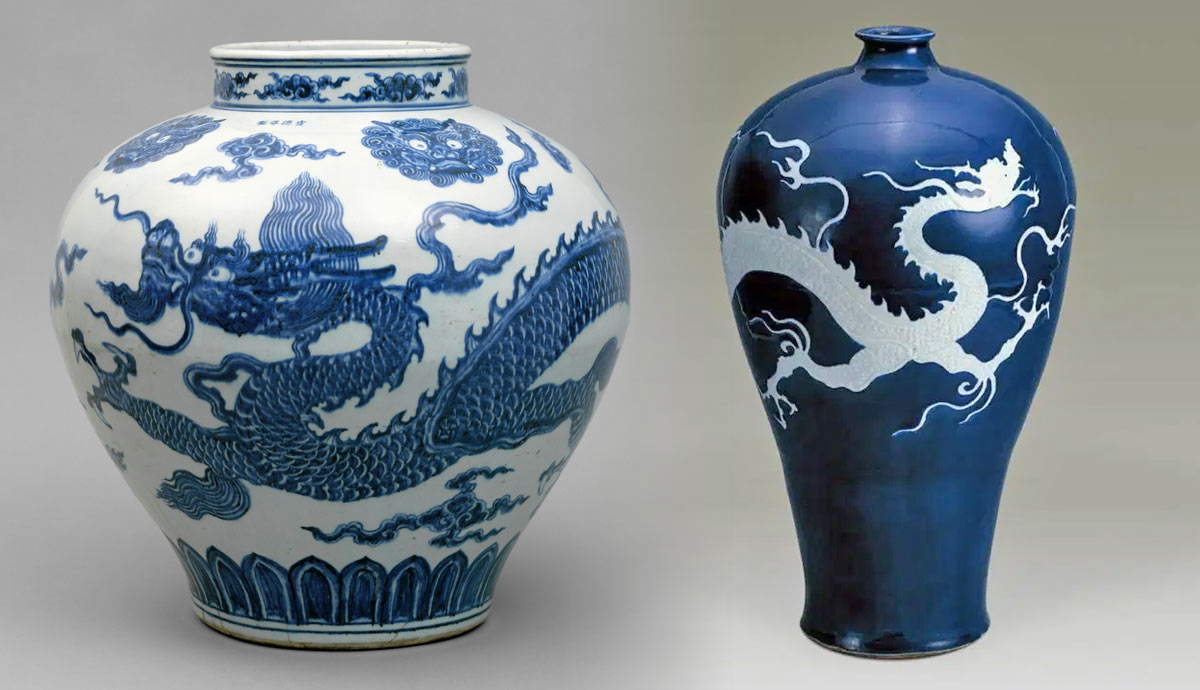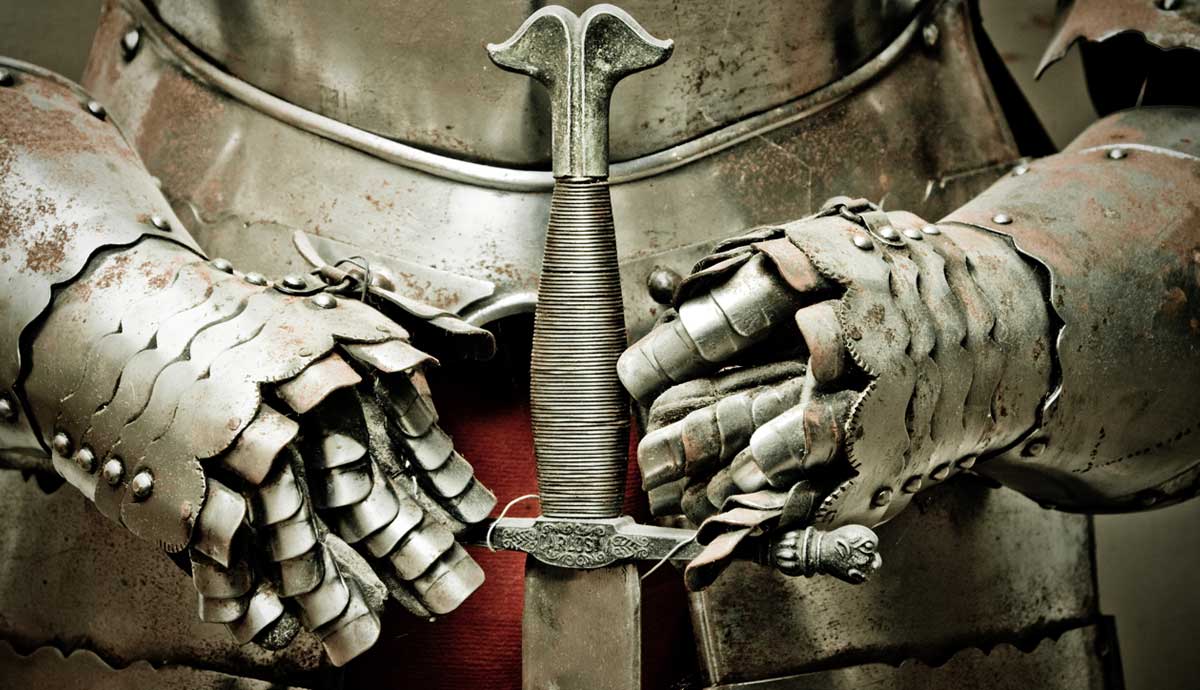
Marcus Licinius Crassus, one of the wealthiest and most powerful men in Rome, played a pivotal role in the downfall of the Roman Republic and its transition into the Roman Empire. Crassus bankrolled and supported the military and political campaigns of Julius Caesar and Pompey the Great, forming the so-called First Triumvirate – an unofficial alliance that allowed its members to bypass the Senate and consolidate power, fulfilling their political and military ambitions.
However, Crassus’ lack of military triumph and the jealousy over Caesar’s and Pompey’s military successes drove him to the East, where he embarked on the ill-fated military campaign against the Parthians. The annihilation of the Roman legions at the Battle of Carrhae in 53 BCE spelled the end of Crassus’ career and life, setting the stage for the civil war between Caesar and Pompey. And the end of the Roman Republic.
Who Was Marcus Licinius Crassus, the Wealthiest Man in Rome?

Marcus Licinius Crassus, the “wealthiest man in Rome,” was born in 115 BCE in Roman Iberia (present-day Spain). The region’s relative remoteness allowed Crassus not only to avoid political turmoil in Italy, but to flourish. The ambitious man used his family wealth to fund an army for Sulla, who rewarded Crassus with the properties confiscated from the victims of the infamous proscriptions. Those assets became the core of Crassus’ burgeoning wealth, which was further increased by investing in various enterprises, including real estate speculation and acquiring hazardous properties in Rome. If we are to believe historian Plutarch, Crassus became notorious for his practice of purchasing fire-damaged buildings at a fraction of their value and then rebuilding and selling the properties at a substantial profit.
Soon, Crassus’ vast holdings encompassed numerous buildings and lands across Rome, making him a dominant figure in the capital’s real estate market. Crassus’ vast fortune enabled him to fund political campaigns of the men who would amply reward him once they gained power. Thus, Crassus became the wealthiest man in Rome.
Crassus Crushed Spartacus’ Slave Revolt

Like any wealthy Roman, Crassus engaged in the slave trade. Slaves were, after all, the lifeblood that kept the Republic alive. While the high-profile enslaved individuals were treated relatively well (some of them better than lower-class freemen), most of the slaves suffered harsh work conditions, forced to work in the mines or row the warships of the Roman navy (albeit not in combat). No wonder this social injustice resulted in slave revolts, including the most severe and dangerous of all – the Spartacus revolt in 73-71 BCE.
Following several Roman defeats at the hands of Spartacus, a former gladiator, and his growing army, the Senate appointed Crassus to deal with the revolt, which was spinning out of control. Recognizing this rare opportunity, Crassus amassed a large force of ten legions, funding most soldiers from his own pocket and taking personal command. However, despite his victory over Spartacus in 71 BCE, the triumph eluded Crassus. Instead, the coveted award went to another powerful and ambitious man – Pompey the Great – who dealt a final blow to the slave rebellion.
He Formed The First Triumvirate

The inability of the Senate to deal with Spartacus’ revolt exposed the weaknesses of the Late Republic, ready to be exploited by those with power and wealth. Crassus had vast fortune and connections but lacked military glory. It did not take long to find allies – two equally ambitious and powerful men – Julius Caesar and Pompey the Great. While Caesar became Crassus’ protégé and friend, Pompey was Crassus’ rival. Yet, Crassus needed both to fulfill his ambitions and become one of the most powerful men in Rome.
Around 60 BCE, three potentates formed the First Triumvirate, an informal alliance designed to bypass the Senate’s authority and advance their personal ambitions. Crassus’ wealth enabled the trio to fund their political campaigns and secure key positions. Caesar brought his military prowess and charismatic leadership, while Pompey contributed his military prestige and political influence. Together, the three triumviri aimed to reshape the political landscape of Rome and divide the Roman world between themselves. It was an uneasy alliance, but it gave Crassus a much-needed opportunity to gain military glory – an opportunity that would lead to his doom.
Crassus Was Captured and Killed During the Parthian Campaign

In 53 BCE, driven by a desire for military glory and jealousy over the achievements of Caesar – the conqueror of Gaul, and Pompey, the man who crushed the Spartacus’ revolt and eradicated Mediterranean piracy, Crassus led Roman legions into Mesopotamia. His goal was to conquer the Parthian Empire. The Romans were slowly encroaching into the Hellenistic East, and Parthia was a prime prize. Victory over such a powerful and wealthy rival would allow Crassus to surpass both Pompey and Caesar. Or so, Crassus thought, when in June 53 BCE, his legions engaged the Parthians near the ancient city of Carrhae.
Instead of military glory, Crassus suffered an ignominious defeat. The Roman legions, predominantly heavy infantry, were lured into the desert and could do little to counter mighty Parthian cataphracts and mounted archers. The result was the destruction of Roman forces and the captivity of those who surrendered. To make matters worse, the Parthians captured the eagle standards, the most prized possession of the Roman legion (they would be retrieved decades later by Augustus). The commander of the ill-fated expedition, Crassus, fell into captivity and was killed by a Parthian general.
Marcus Licinius Crassus’ Demise Led to the Fall of the Republic

The defeat at Carrhae was a significant blow to Roman prestige and marked one of the worst military disasters in Roman history, along with Cannae and Adrianople. The infamous story of Crassus being executed by having molten gold poured down his throat is probably a rumor. Crassus’ death plunged Rome into chaos. It did not take long for the triumvirate to collapse, putting Caesar and Pompey on a collision course. A series of civil wars undermined the foundations of the Republic. In the end, the sole victor – Caesar’s nephew Octavian – declared himself Augustus, the first Roman emperor.
Marcus Licinius Crassus’ rise and fall remains a cautionary tale of ambition, jealousy, military misfortune, and hubris. His immense wealth and political ambitions set the stage for turbulent events, highlighting the role of powerful individuals and the precarious balance of power in the last years of the Roman Republic. Thus, Crassus’s life and career mirror the volatile nature of Roman politics, where alliances were fleeting, and personal ambition often dictated the course of history. The ambitions and actions of men like Crassus, whose pursuit of power and glory toppled down the Republic and ushered in the Roman Empire.










